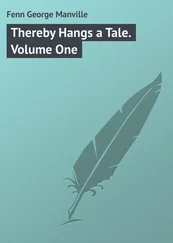George Warburton - The Conquest of Canada, Vol. 1
Здесь есть возможность читать онлайн «George Warburton - The Conquest of Canada, Vol. 1» — ознакомительный отрывок электронной книги совершенно бесплатно, а после прочтения отрывка купить полную версию. В некоторых случаях можно слушать аудио, скачать через торрент в формате fb2 и присутствует краткое содержание. Жанр: foreign_prose, История, foreign_edu, foreign_antique, на английском языке. Описание произведения, (предисловие) а так же отзывы посетителей доступны на портале библиотеки ЛибКат.
- Название:The Conquest of Canada, Vol. 1
- Автор:
- Жанр:
- Год:неизвестен
- ISBN:нет данных
- Рейтинг книги:5 / 5. Голосов: 1
-
Избранное:Добавить в избранное
- Отзывы:
-
Ваша оценка:
- 100
- 1
- 2
- 3
- 4
- 5
The Conquest of Canada, Vol. 1: краткое содержание, описание и аннотация
Предлагаем к чтению аннотацию, описание, краткое содержание или предисловие (зависит от того, что написал сам автор книги «The Conquest of Canada, Vol. 1»). Если вы не нашли необходимую информацию о книге — напишите в комментариях, мы постараемся отыскать её.
The Conquest of Canada, Vol. 1 — читать онлайн ознакомительный отрывок
Ниже представлен текст книги, разбитый по страницам. Система сохранения места последней прочитанной страницы, позволяет с удобством читать онлайн бесплатно книгу «The Conquest of Canada, Vol. 1», без необходимости каждый раз заново искать на чём Вы остановились. Поставьте закладку, и сможете в любой момент перейти на страницу, на которой закончили чтение.
Интервал:
Закладка:
In the Carthaginian annals is found the mention of a fertile and beautiful island of the distant Atlantic. Many adventurous men of that maritime people were attracted thither by the delightful climate and the riches of the soil; it was deemed of such value and importance that they proposed to transfer the seat of their republic to its shores in case of any irreparable disaster at home. But at length the Senate, fearing the evils of a divided state, denounced the distant colony, and decreed the punishment of death to those who sought it for a home. If there be any truth in this ancient tale, it is probable that one of the Canary Islands was its subject. 9
Although the New World in the West was unknown to the ancients, there is no doubt that they entertained a suspicion of its existence; 10the romance of Plato—the prophecy of Seneca, were but the offsprings of this vague idea. Many writers tell us it was conjectured that, by sailing from the coast of Spain, the eastern shores of India might be reached; 11the length of the voyage, or the wonders that might lie in its course, imagination alone could measure or describe. Whatever might have been the suspicion or belief 12of ancient time, we may feel assured that none then ventured to seek these distant lands, nor have we reason to suppose that any of the civilized European races gave inhabitants to the New World before the close of the fifteenth century.
To the barbarous hordes of Northeastern Asia America must have long been known as the land where many of their wanderers found a home. It is not surprising that from them no information was obtained; but it is strange that the bold and adventurous Northmen should have visited it nearly five hundred years before the great Genoese, and have suffered their wonderful discovery to remain hidden from the world, and to become almost forgotten among themselves. 13
In the year 1001 the Icelanders touched upon the American coast, and for nearly two centuries subsequent visits were repeatedly made by them and the Norwegians, for the purpose of commerce or for the gratification of curiosity. Biorn Heriolson, an Icelander, was the first discoverer: steering for Greenland, he was driven to the south by tempestuous and unfavorable winds, and saw different parts of America, without, however, touching at any of them. Attracted by the report of this voyage, Leif, son of Eric, the discoverer of Greenland, fitted out a vessel to pursue the same adventure. He passed the coast visited by Biorn, and steered southwest till he reached a strait between a large island and the main land. Finding the country fertile and pleasant, he passed the winter near this place, and gave it the name of Vinland, 14from the wild vine which grew there in great abundance. 15The winter days were longer in this new country than in Greenland, and the weather was more temperate.
Leif returned to Greenland in the spring; his brother Thorvald succeeded him, and remained two winters in Vinland exploring much of the coast and country. 16In the course of the third summer the natives, now called Esquimaux, were first seen; on account of their diminutive stature the adventurers gave them the name of Skrælingar . 17These poor savages, irritated by an act of barbarous cruelty, attacked the Northmen with darts and arrows, and Thorvald fell a victim to their vengeance. A wealthy Icelander, named Thorfinn, established a regular colony in Vinland soon after this event; the settlers increased rapidly in numbers, and traded with the natives for furs and skins to great advantage. After three years the adventurers returned to Iceland enriched by the expedition, and reported favorably upon the new country. Little is known of this settlement after Thorfinn's departure till early in the twelfth century, when a bishop of Greenland 18went there to promulgate the Christian faith among the colonists; beyond that time scarcely a notice of its existence occurs, and the name and situation of the ancient Vinland soon passed away from the knowledge of man. Whether the adventurous colonists ever returned, or became blended with the natives, 19or perished by their hands, no record remains to tell. 20
Discoveries such as these by the ancient Scandinavians—fruitless to the world and almost buried in oblivion—can not dim the glory of that transcendant genius to whom we owe the knowledge of a New World.
The claim of the Welsh to the first discovery of America seems to rest upon no better original authority than that of Meridith-ap-Rees, a bard who died in the year 1477. His verses only relate that Prince Madoc, wearied with dissensions at home, searched the ocean for a new kingdom. The tale of this adventurer's voyages and colonization was written one hundred years subsequent to the early Spanish discoveries, and seems to be merely a fanciful completion of his history: he probably perished in the unknown seas. It is certain that neither the ancient principality nor the world reaped any benefit from these alleged discoveries. 21
In the middle of the thirteenth and the beginning of the fourteenth centuries, the Venetian Marco Polo 22and the Englishman Mandeville 23awakened the curiosity of Europe with respect to the remote parts of the earth. Wise and discerning men selected the more valuable portions of their observations; ideas were enlarged, and a desire for more perfect information excited a thirst for discovery. While this spirit was gaining strength in Europe, the wonderful powers of the magnet were revealed to the Western World. 24The invention of the mariner's compass aided and extended navigation more than all the experience and adventure of preceding ages: the light of the stars, the guidance of the sea-coast, were no longer necessary; trusting to the mysterious powers of his new friend, the sailor steered out fearlessly into the ocean, through the bewildering mists or the darkness of night.
The Spaniards were the first to profit by the bolder spirit and improved science of navigation. About the beginning of the fourteenth century, they were led to the accidental discovery of the Canary Islands, 25and made repeated voyages thither, plundering the wretched inhabitants, and carrying them off as slaves. 26Pope Clement VI. conferred these countries as a kingdom upon Louis de la Cerda, of the royal race of Castile; he, however, was powerless to avail himself of the gift, and it passed to the stronger hand of John de Bethancourt, a Norman baron. 27The countrymen of this bold adventurer explored the seas far to the south of the Canary Islands, and acquired some knowledge of the coast of Africa.
The glory of leading the career of systematic exploration belongs to the Portuguese: 28their attempts were not only attended with considerable success, but gave encouragement and energy to those efforts that were crowned by the discovery of a world: among them the great Genoese was trained, and their steps in advance matured the idea, and aided the execution of his design. The nations of Europe had now begun to cast aside the errors and prejudices of their ancestors. The works of the ancient Greeks and Romans were eagerly searched for information, and former discoveries brought to light. 29The science of the Arabians was introduced and cultivated by the Moors and Jews, and geometry, astronomy, and geography were studied as essential to the art of navigation.
In the year 1412, the Portuguese doubled Cape Non, the limit of ancient enterprise. For upward of seventy years afterward they pursued their explorations, with more or less of vigor and success, along the African coast, and among the adjacent islands. By intercourse with the people of these countries they gradually acquired some knowledge of lands yet unvisited. Experience proved that the torrid zone was not closed to the enterprise of man. 30They found that the form of the continent contracted as it stretched southward, and that it tended toward the east. Then they brought to mind the accounts of the ancient Phoenician voyagers round Africa, 31long deemed fabulous, and the hope arose that they might pursue the same career, and win for themselves the magnificent prize of Indian commerce. In the year 1486 the adventurous Bartholomew Diaz 32first reached the Cape of Good Hope; soon afterward the information gained by Pedro de Covilham, in his overland journey, confirmed the consequent sanguine expectations of success. The attention of Europe was now fully aroused, and the progress of the Portuguese was watched with admiration and suspense. But during this interval, while all eyes were turned with anxious interest toward the East, a little bark, leaky and tempest-tossed, sought shelter in the Tagus. 33It had come from the Far West—over that stormy sea where, from the creation until then, had brooded an impenetrable mystery. It bore the richest freight 34that ever lay upon the bosom of the deep—the tidings of a New World. 35
Читать дальшеИнтервал:
Закладка:
Похожие книги на «The Conquest of Canada, Vol. 1»
Представляем Вашему вниманию похожие книги на «The Conquest of Canada, Vol. 1» списком для выбора. Мы отобрали схожую по названию и смыслу литературу в надежде предоставить читателям больше вариантов отыскать новые, интересные, ещё непрочитанные произведения.
Обсуждение, отзывы о книге «The Conquest of Canada, Vol. 1» и просто собственные мнения читателей. Оставьте ваши комментарии, напишите, что Вы думаете о произведении, его смысле или главных героях. Укажите что конкретно понравилось, а что нет, и почему Вы так считаете.












